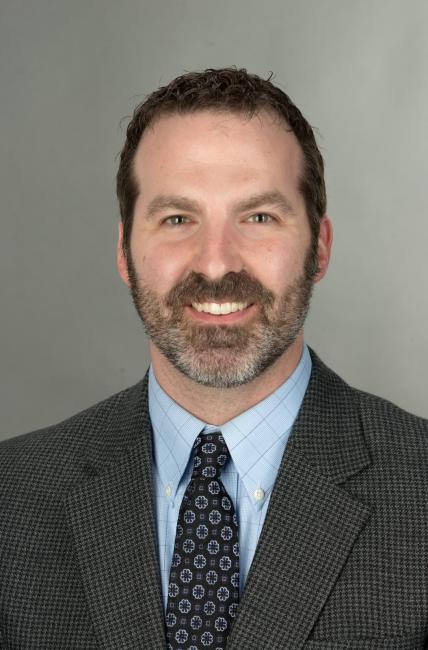
Patton Hall 309R
Dr. Michael Kopish began his career in education as a high school social studies teacher. He holds a B.A. in History with minors in Secondary Education and Psychology from Mt. Mercy College, a Master of Arts in Teaching from Coe College, and a Ph.D. in Curriculum and Instruction with a minor in Educational Psychology from the University of Wisconsin-Madison. Dr. Kopish teaches courses in social studies education and AYA courses in secondary education. His major research interests include teaching and learning in social studies classrooms, inclusive literacy practices, and youth participation and civic engagement.
Research, Engagement, and Outreach interests: Global Citizenship Education, Globally Competent Teaching; Community Engaged Teacher Education, Service Learning; Inclusive Classroom Practices in Social Studies.
Most Recent Publications:
Kopish, M.A., Ozturk, F. & Marques, W. (2025). Global Citizenship Teacher Education Through Collaborative Online International Learning In (J. Zajda & A. Rapoport, Eds.) Citizenship Education, Globalization, and Advances in Technology. (pp. 107-131). Springer.
Zayimoglu Ozturk, F., Kopish, M.A., & Ozturk, T. (2025). The ongoing trend in teacher competence: A bibliometric analysis of Scopus. International Journal of Research in Education and Science (IJRES), 11(1), 166-189. https://doi.org/10.46328/ijres.3619
Kopish, M.A. (2024). Preparing Future Global Citizenship Educators: Navigating a Contested Field from Theory to Practice. In (J. Zajda & A. Rapoport, Eds.) Discourses of Globalisation, Cultural Diversity and Active Citizenship Education (pp. 69-97). Springer.
Kopish, M.A. & Shahri, B. (2024). Preparing Globally Competent Middle Childhood Social Studies Teacher Candidates. Journal of International Social Studies, 14(1), 59-89. https://files.eric.ed.gov/fulltext/EJ1440923.pdf
Kopish, M.A., & Ozturk, F. (2024). Collaborative Online International Learning: A Promising Practice for Developing Intercultural and Global Competencies with Turkish and American Teacher Candidates. Frontiers: The Interdisciplinary Journal of Study Abroad. 36(2), 29-57. https://doi.org/10.36366/frontiers.v36i2.925
Kieninger, K. M. & Kopish, M. A. (2024). Pluralist Economics, Critical Empathy, and Citizenship: Overcoming the Influence of the Council for Economic Education and Mainstream Economics in the K-12 Economics Classroom. In (T. Lucey & K, Cooter, Eds.) Critical Empathy as Teacher Education Reform: Dissecting the Principles that Constrain Socio-Historical and Moral Vision (pp. 209-249). Information Age Publishing.
Endacott, J. & Kopish, M. A. (2023). The Language of Social Studies. Leiden: Brill. DOI:10.1163/9789004546967
Kieninger, K. & Kopish, M.A. (2023). Developing an Understanding of Secondary Social Studies Teacher Candidates’ Economic Pedagogical Content Knowledge. Journal of Social Studies Education Research, 14(3), 1-25. https://www.learntechlib.org/p/222954/.
Onosko, J. J., Kopish, M. A., & Swenson, L. (2021). Essential elements of unit design when exploring public issues with students. In R. Evans (Ed) Handbook on Teaching Social Issues. (2nd ed.) (pp. 299-314). Charlotte, NC, Information Age Publishing.
Dani, D., Harrison, L., Felton-Koestler, M., Kopish, M.A., Dunham, J., Hallman Thrasher, A., & Shaw, O. (2021). Nature of mentoring interactions to support teacher candidate learning in clinical settings. Peabody Journal of Education. https://doi.org/10.1080/0161956X.2020.1864248
Doppen, F.H., Winnenberg, J.M., Kopish, M.A., & Shahri, B. (2021). Out of the bubble: Service learning in the Little Cities of Black Diamonds. In M. Morrone & T. Arnold (Eds). From surviving to thriving in Appalachia: Place, passion, and possibilities (pp. 14-27). Athens, OH: Ohio University, The Appalachian Rural Health Institute.
Kopish, M. A., & Marques, W. (2020). Leveraging technology to promote global citizenship in teacher education in the United States and Brazil. Research in Social Sciences and Technology, 5(1), 45-69, https://doi.org/10.46303/ressat.05.01.3
Kopish, M. A., Shahri, B., & Amira, M. (2019). Developing globally competent teacher candidates through cross-cultural experiential learning. Journal of International Social Studies. 9(2), 3-34.